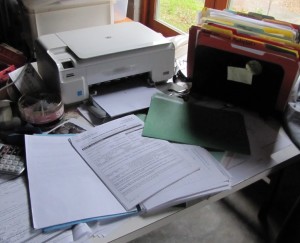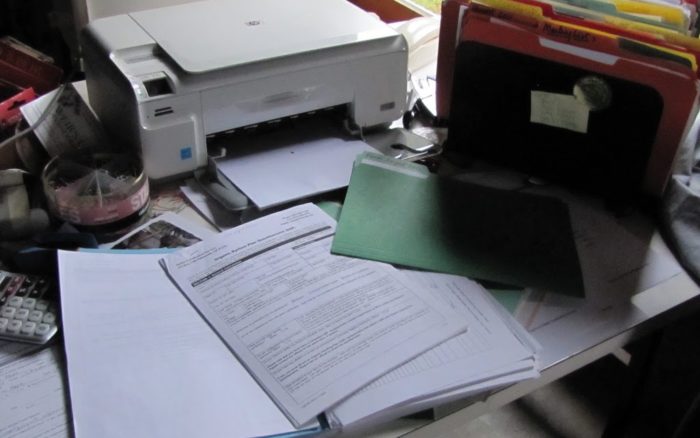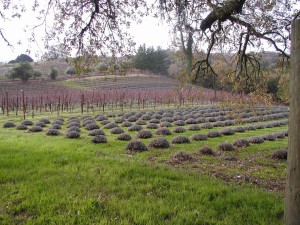 |
| Records: not my cup of tea!! |
Each year about this time we are confronted with accounting for our farming practices over the last year and reporting our plans for the next. This is no small matter! In Biodynamic organic certification, we annually update four (long!) documents, two for Demeter Biodynamic certification, two for Stellar Certification Services organic certification, plus an assortment of forms for inputs, labels of inputs, crop plans and production reports, and seed search reports. Each year we submit to a rigorous regimen and pay for the privilege as well! — in inspection costs, certification costs with Demeter and Stellar, and royalties, as well as licensing costs and royalties with the County of Napa and with the California Department of Health.
We are asked: How much compost have you made? What is in it? How do you make your pile? How hot does it get, and for how long? What kinds and numbers of animals do you have? Do you haul manure, and if so, how far? (Demeter considers the energy cost of doing so.) How much compost is enough for your land? too much? How many vines/fruit trees are enough, given the land you live on? What is the impact on the larger environment of what you do?
And this is only for the compost! Every detail of farming is questioned!
I will be honest: it is a real drag to answer these questions. It puts me in a grumpy mood! A real whiner in me wonders why we have to do this, and, on top of it, pay to do so, and with three different entities!— while farmers up and down the valley are dumping toxic chemicals disguised as herbicides, pesticides, fungicides, and fertilizer ( as much of 55% of it leaving site, according Pesticide Safety, University of California Publication 3383)) and get by without paying for the larger damage they are causing! (Okay, I know this is a rant!)
One hundred years ago, these certification questions would have been easier to answer, before quantity, efficiency, and profit outpaced balance. Farms were diverse; crops were rotated, animals, a given, necessary part of the operation. But the 1970‘s brought a revolution in which monocropping and “industrial” practices for animals were touted as more efficient, and we all bought into it. It is the Faustian bargain of our age: to use whatever we can get our hands on regardless of the impact on anyone/thing else, with profit as the highest value and motive. This makes sense to the majority of the population!
Demeter insists that we consider the impact, and I suppose in the long run, this is why we keep “putting up” with this discipline. Farming in this way is similar to a psychological analysis. Who in my analytic practice has ever come because they enjoy having to look at all the ways they contribute to being out of balance within themselves and with others? Yet necessity dictates: a relationship fails, depression wraps its dark wing around the soul, the unconscious floods the night with dreams that waken.
Carl Jung said that “the psychological problem of our age is a spiritual problem, a religious problem” (C. G. Jung Speaking: Interviews and Encounters). I would say this is also true of farming and more generally, of our relationship with the earth. When we treat the earth as an object, we rationalize our exploitation of it as a right. But when we consider the Earth as a community of living beings, a symphony of spirit, ourselves only one part (and, as the Lakota say, a younger part as well!), we are opened to the connectedness of everything. Respect becomes a part of the interaction. Our environmental crisis would look quite different through the lens of respect for the other, even the not-human other.
This is one reason why my husband and I continue with the discipline of Biodynamic farming. These certification questions remind us of our interconnectedness with our farm and all that resides here, as well as with the larger ecosystem of which we are a part. It is one small way we can personally address the larger environmental imbalance we are facing.

